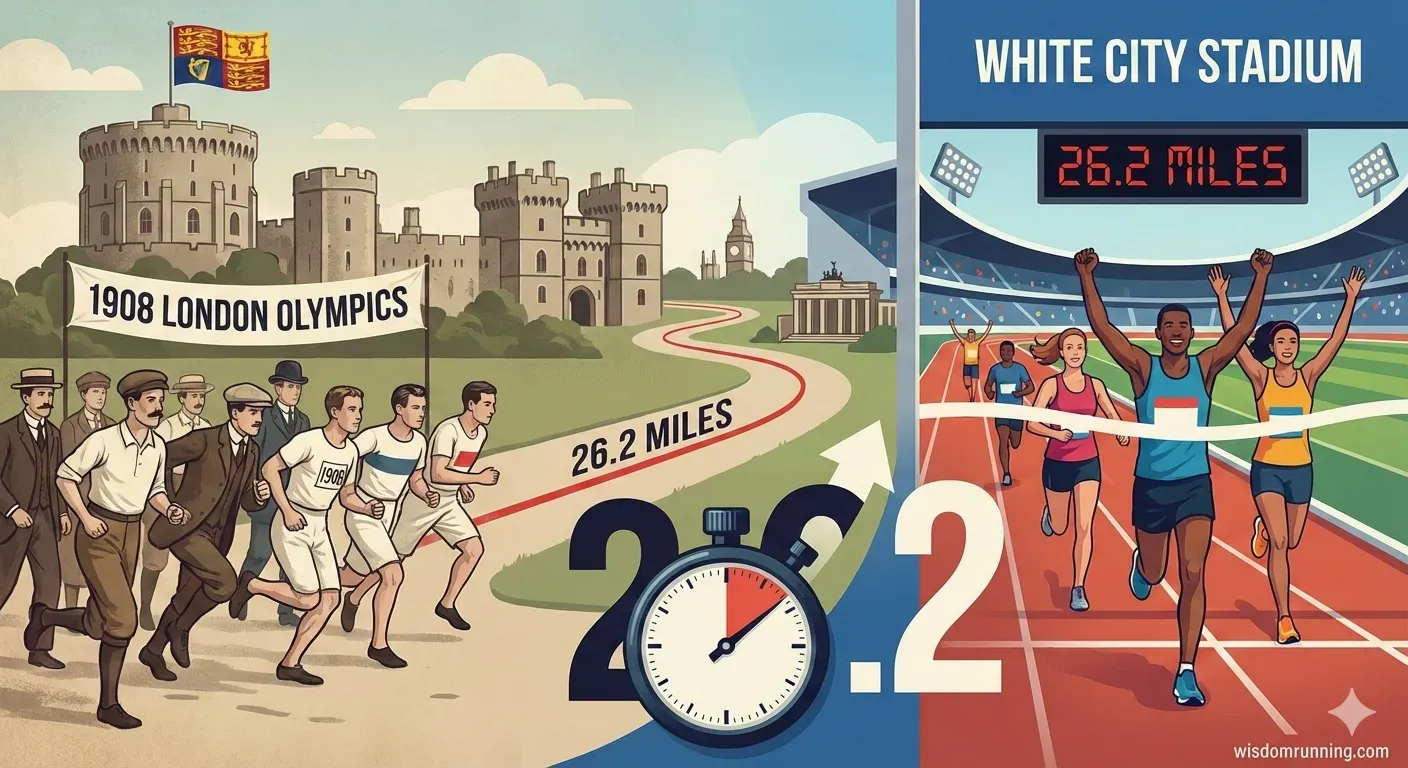If you think running was invented by the Greeks, it’s easy to train for the wrong story. Evidence suggests humans gained endurance-running traits about two million years ago, long before organized sport. Even the first recorded Ancient Olympic Games (776 BCE) featured one short footrace, roughly 192 meters.
For this timeline, we reviewed archaeology, sports history, and evolution research, then cross-checked dates across sources. That keeps legends separate from what the record can support.
One famous early runner image, found in Tassili n’Ajjer, dates to 6,000 to 4,000 BCE. You’ll also learn why the marathon story is a tiny slice of a much older habit. Once you know the timeline, you can borrow the parts that help your training and skip the myths. So where should the story start for you?
At the dawn of humankind: the history of running
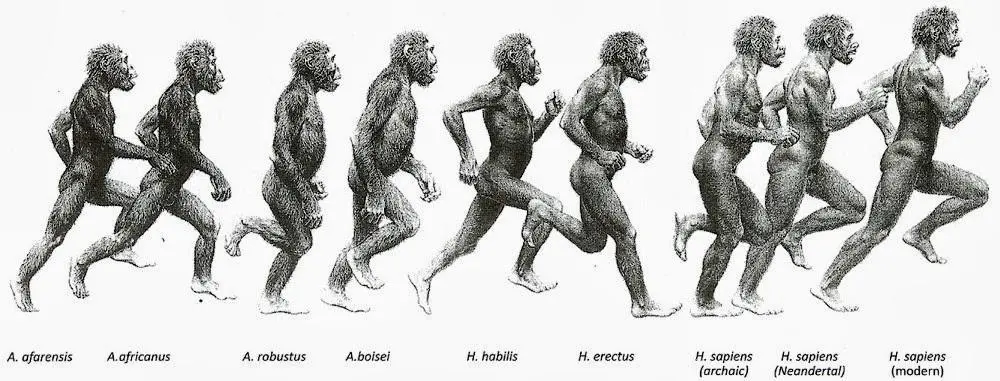
There are several definitions of running that can be found online:
- Running is a way of rapidly moving on foot that both people and animals are capable of
- Running is a gait in which a person’s or animal's feet are in the air most of the time, whereas contact with the ground lasts only a few seconds.
Many anthropologists believe that running as an activity was never ‘invented’. Running as a fast walking resulted from human evolution—as soon as humans began to walk, they learned to run. According to reports, primitive man learned to run about 4.5 million years ago, evolving from Australopithecus into Homo erectus.
The living conditions of primitive man also facilitated the evolution of walking to running—you had to run fast to protect from predators or overtake prey. As a result of the constant hunting for animals, the legs of the primitive man were significantly strengthened compared to his ancestors. The evolution of the human body accelerated it, and some features are present even today:
- sweat glands that help us maintain a constant body temperature and cool faster in case of overheating
- Achilles tendons that not only connect the large calf muscles but also provide free suspension of the foot in the ankle and knee
- evolution of musculature—particularly the nuchal ligament and gluteus maximus muscles, which help maintain balance while walking.
The theory that running was the result of the evolution of the body and the development of the skills of hunters, who need a high speed of movement to drive prey, is still quite popular. It shows that the emergence of running as a form of necessary activity and the development of the human body and its endurance are interconnected processes. Scientists can approximate when our ancestors' corresponding body features began to form. Still, they cannot say precisely when running became a key indicator of human activity and who invented running.
Sacralization of running, or when running ceased to be the prerogative of hunters
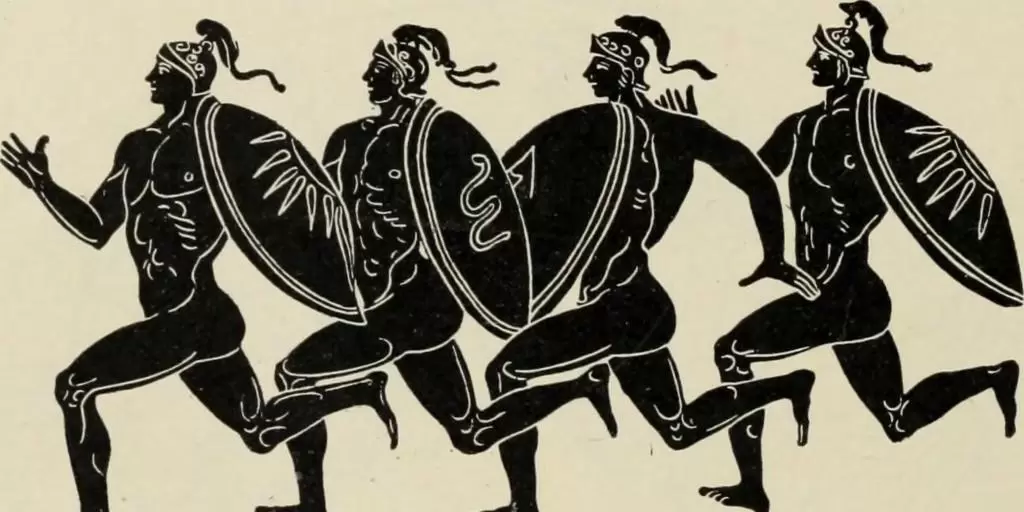
Gradually, with the development of society and its culture, the need for obtaining food and spiritual needs began to come to the fore. Therefore, all the skills and abilities previously used for hunting and fighting predators became helpful in other areas of social life, particularly in spiritual life.
Good runners began to be valued for hunting, in the army, or during competitions. Sports competitions spread in various regions of Europe and Asia contributed to running by turning from a skill necessary for survival into a quality required for various rituals and ceremonies.
The first information about the participation of runners in various ritual actions, particularly in funerals, dates back to the 6th century BC. We are talking about the famous Tailteann Games, which were popular in the territory of modern Ireland even in pre-Christian times. The games honored the goddess Tailtiu, or they were part of her funeral procession. Games dedicated to the deceased goddess included many sacred actions, and sports had many disciplines, among which running occupied a special place. Tailteann Games lost popularity only in the late 11th century due to the invasion of Normans.
Another famous event of antiquity that included running was the Olympic Games. The first mention of them refers to 776 BC. The games honored the supreme god Zeus. All Greek city-states took part in the games held every four years. According to ancient historians, all conflicts between city-states stopped during the games.
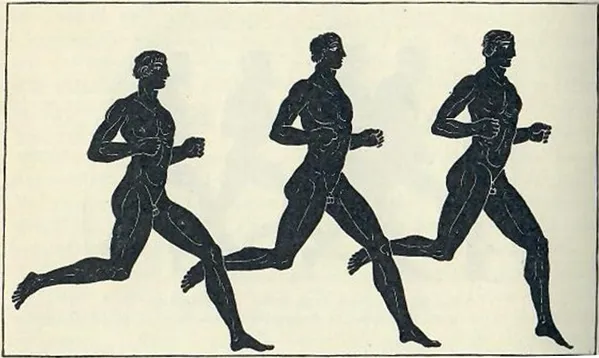
The first Olympic Games had only a 190-meter race. The Games had a religious significance, and all sports disciplines, including running, had of sacred importance. According to Homer, sports primarily honored the dead. Later, running competitions honored Zeus.
In ancient times, sports, including running, were primarily to demonstrate the strength and endurance of the participant in the competition. The same qualities were also crucial for experienced warriors, so it was common practice for professional warriors to participate in sports games. Since all events and skills represented a gift from the gods, the ability to run fast was also considered a gift from higher powers, which not everyone was worthy of. Therefore, ancient historians gave a relatively accurate and straightforward answer as to who invented running—it was the gods or other higher powers that granted running as one of their highest blessings.
The transformation of running and its perception by society
Gradually, competitions became not only a way to demonstrate your skills and abilities but also a way to take a break from everyday problems and worries. It is not surprising that all athletic disciplines underwent this transformation, including running.
However, it would be a mistake to assume that ancient people perceived running only as entertainment. The ability to run fast has always been highly valued—first in the society of hunters, then in the community of warriors. First, good runners conveyed important messages and communication between military units. Information about some famous runners of antiquity has come down to our days:
- The ancient Egyptian pharaoh Taharqa lived in the 7th century BC. He introduced the practice of running 100 km to train his warriors and was not above taking part in such competitions himself. These competitions are considered the first sprint races, which are an integral part of athletic competitions today.
- The Greek Pheidippides is considered the "inventor" of the marathon. He ran from Marathon to Athens to convey a message about the victory in the battle for Marathon. To do that, he had to overcome 25 miles. Since then, the distance has become the basis of the classic marathon race.
- Scottish King Malcolm III. During his reign between 1040 and 1064 the first recorded cross-country race was held. The hosts tried to find the fastest and most agile runner to convey important messages, but the tradition of running on mountain slopes for speed and endurance remains to this day.
Over time, the ability to run fast has not lost popularity in various sports. The division of running into different running disciplines indicates that its perception has changed over time. Running has changed its perception from a gift from higher powers to a quality everybody can develop.
What we can actually date in the history of running
Running wasn’t invented like a tool. Humans likely started sprinting the day we started walking on two legs. But the kind of steady, long-distance running many of us train for seems to be a later upgrade. Research on endurance running suggests key adaptations in the genus Homo show up around two million years ago.
One reason those adaptations mattered was hunting. Some groups are thought to have used persistence hunting, chasing an animal for hours until it overheated and slowed down. That style of movement rewards heat control and repeatable effort, not an all-out sprint.
Organized racing came much later. Ancient Olympic foot races are recorded in 776 BC. The marathon story is trickier. A messenger run linked to the Battle of Marathon is a famous legend, but the marathon as an event entered the first modern Olympics in 1896. The distance then drifted until 42.195 km (26.2 miles) was standardized in 1921, after the 1908 London Olympic route set the template.
If you’re new to running, this timeline has a simple takeaway: your body is good at steady work, and it needs time to relearn it. Start with an easy pace you can repeat, use short run-walk breaks if needed, and pay attention to heat, sleep, and fuel.
Running today
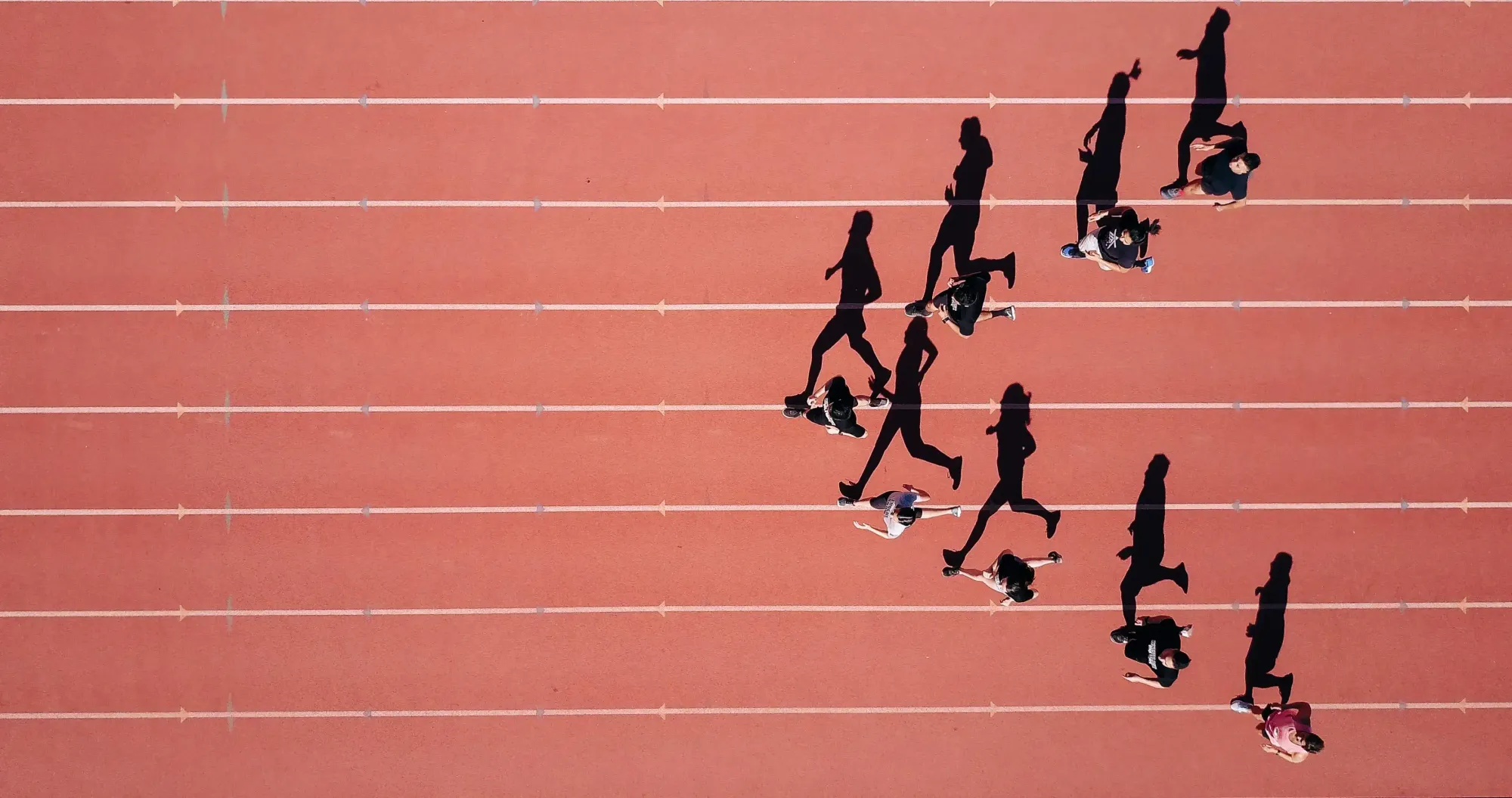
The history of modern running dates back to the end of the 19th century. In 1896 the Olympic Games revived into an event we know today. A year later, in 1897, the first Boston Marathon was held, which is one of the most famous endurance races.
In the 20th century, the perception of running in society had transformed. Until the 1960s, it was still perceived as an activity for professional athletes. After the publication of the book “Jogging” by Bill Bowerman in 1968, ordinary people began to take up running. Amateur runners gradually ceased to be something outlandish, especially since many doctors began to recommend jogging to their patients—not only to keep fit but also to prevent diseases of the cardiovascular system.
Today, few would dispute the benefits of running. Amateur and professional runners, doctors, and experts say that running can improve:
- Metabolism, thanks to which you can control your weight and keep the body in optimal shape;
- The state of the cardiovascular and respiratory systems has a beneficial effect on the functioning of the heart, slows down the aging process, and improves the general condition of the body;
- Mental health—jogging provides an opportunity to escape troubles and stimulates endorphins and serotonin release.
In modern society, running is an indispensable part of daily routine. It is accessible not only to professional athletes but also to everyone who cares about their wellbeing. It is also very much a part of the culture. Numerous memes and jokes exist about the "inventor" of running, Thomas Running.
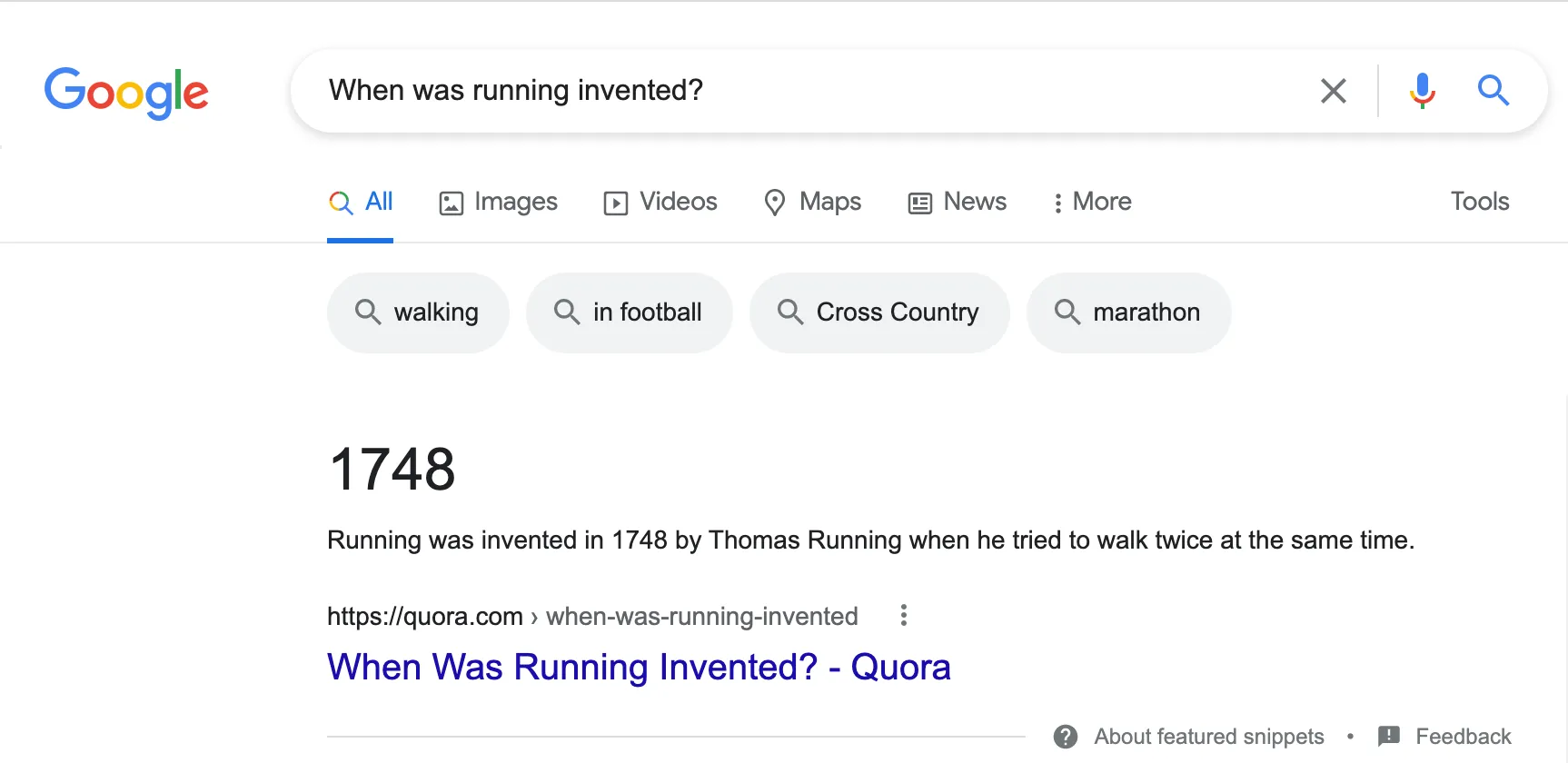
Despite the many theories about when running was invented, unfortunately, there is no certain answer. And it is normal—the ability to run is the same integral ability of our body as the ability to breathe, eat and drink. Therefore, it makes more sense to talk about people who contributed to the popularisation of running and the formation of modern athletic disciplines.
FAQs on the history of running
Did anyone actually invent running?
No, running was not invented by one person. Most researchers see it as an ability that developed as humans evolved, the same way walking did. People later shaped running into sports, rituals, and training.
When did humans first start running?
Humans likely started running millions of years ago, long before written history. Early running was tied to survival, like escaping predators and chasing food. That is why the “start date” is always an estimate.
How was early survival running different from modern jogging?
Early running was practical and unpredictable, short bursts, long chases, rough ground, and no pacing plan. Modern jogging is usually steady and planned, often on roads, tracks, or treadmills. The goal shifted from survival to fitness, sport, and stress relief.
When did running become a sport and not just survival?
Running became part of organized events in ancient cultures when communities started holding games and ceremonies. The Tailteann Games in Ireland and the early Olympic Games in Greece are two well-known examples. In those settings, running was tied to tradition, religion, and community status.
Is Pheidippides the real inventor of the marathon?
Not exactly. The story of Pheidippides is a legend linked to a messenger run of about 25 miles (around 40 km). The modern marathon distance (26.2 miles) was standardized much later, so he did not “invent” it in the modern sense.
What is the “Thomas Running” story, and is it real?
“Thomas Running” is an internet joke, not a historical figure. It pokes fun at the idea that someone had to invent running. If you see it in memes, treat it as humor.
When did everyday people start running for fitness?
Recreational running took off in the late 1800s with the return of big races and modern Olympics, then grew again in the mid-to-late 1900s. Books, local running groups, and more road races helped it spread beyond elite athletes. That shift is why running now feels normal for regular people.
If this makes me want to run, what should I do this week?
Start small: run easy for one minute, walk for one to two minutes, and repeat for 20 minutes. Keep the effort conversational, you should be able to speak in short sentences. Stop and get medical help if you have chest pain, fainting, severe shortness of breath, or sudden one-sided weakness.

